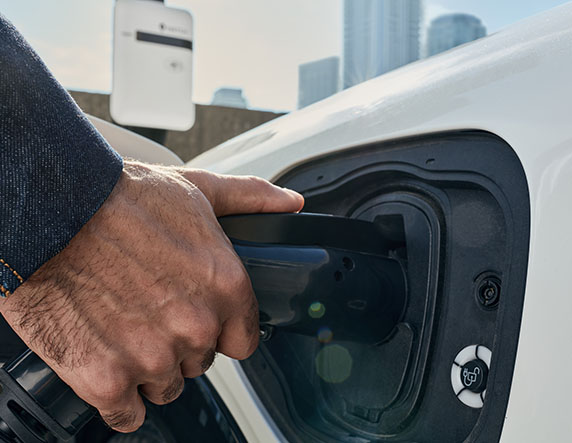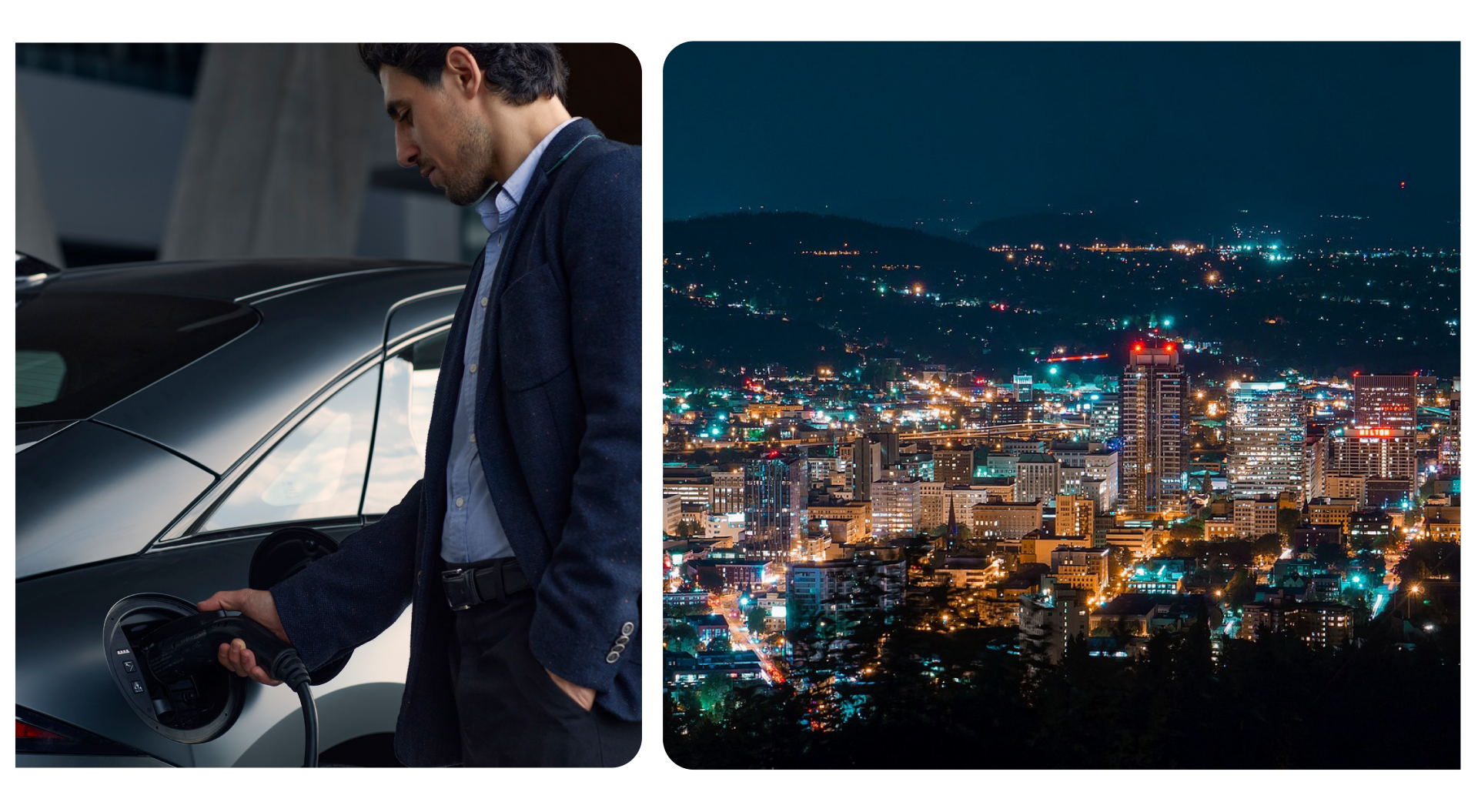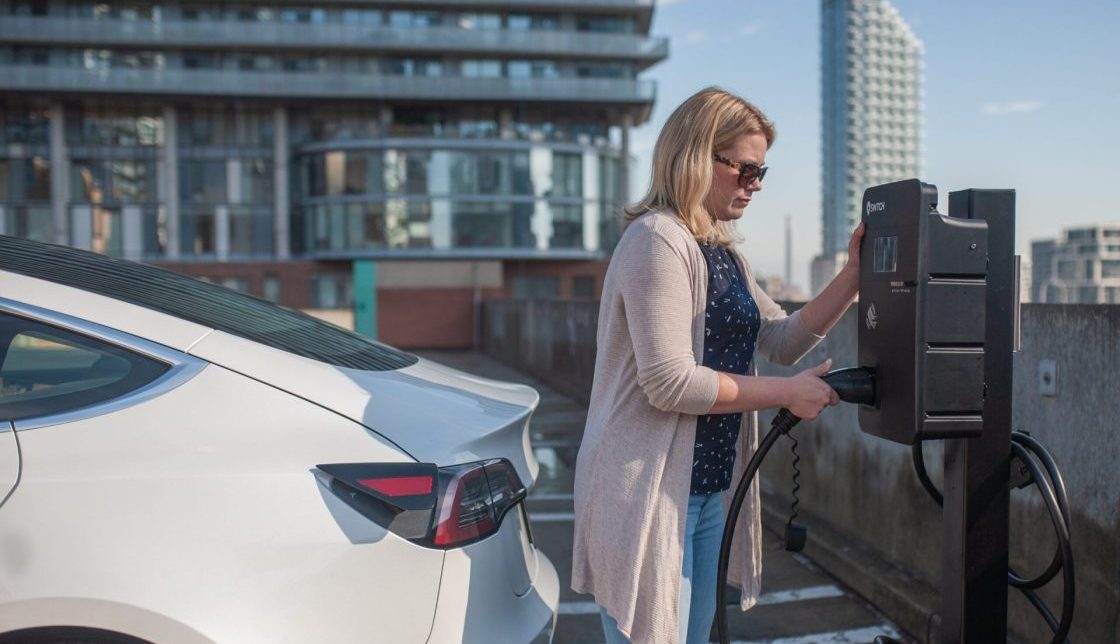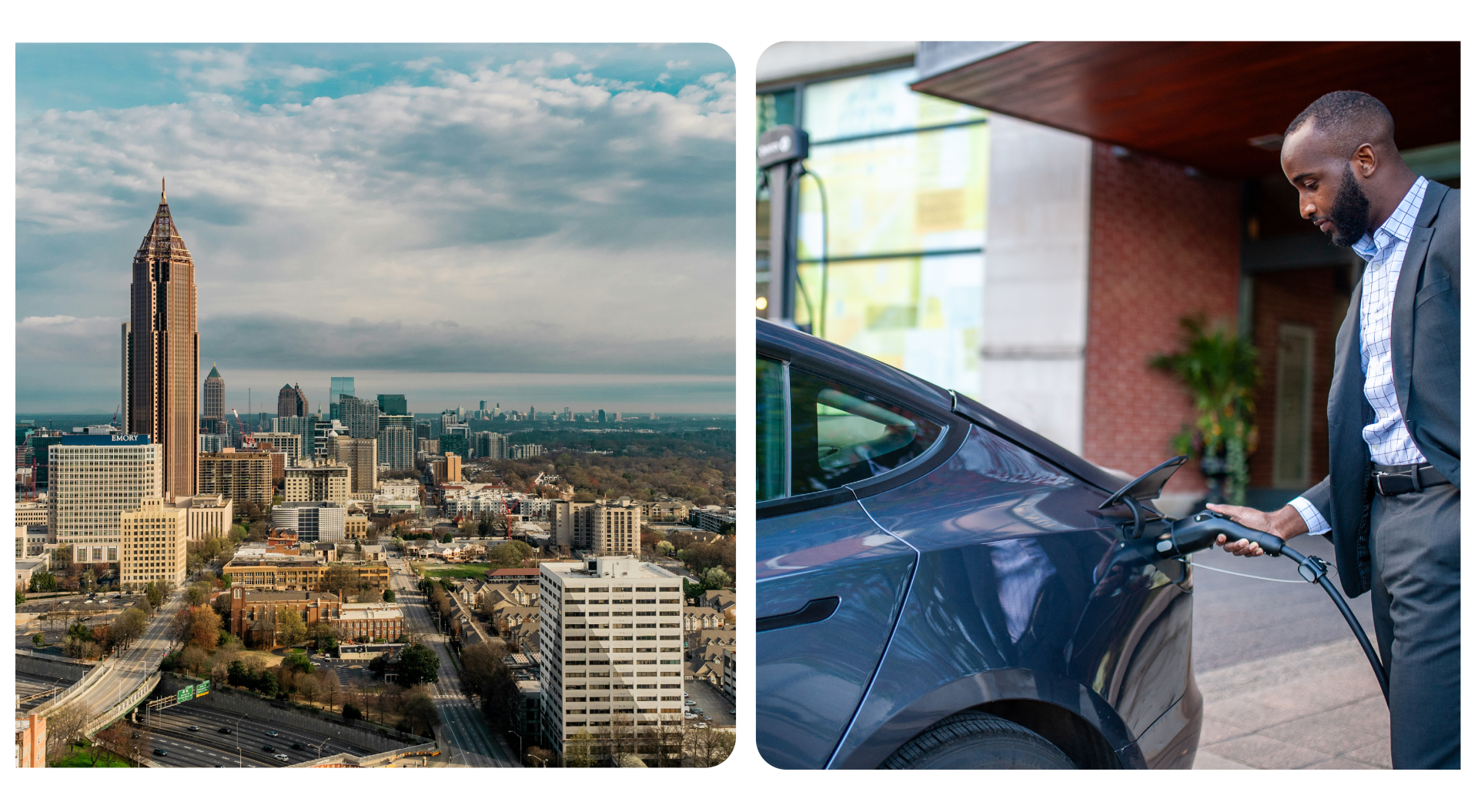California’s statewide EV charging incentive program focuses funding on multifamily properties
Program Overview
The state of California aims to have 1.2 million Level 2 EV chargers installed by 2030. The impending launch of the “Communities in Charge” program in 2023, funded by the CEC, aims to help achieve this goal by rapidly catalyzing the installation of Level 2 EV charging stations to serve communities across the state of California. A block grant of $30 million has been set to fund this year alone, with a potential total of $250 million over the life of the program. If you own or manage multifamily assets in California, this is a fantastic opportunity to future-proof your existing buildings and take advantage of public funding. But make no mistake, with the rising demand for EV charging, grant funding will quickly run dry. Submitting a timely and solid application will be crucial.
Reach out to us to learn how SWTCH, a qualified EV charging network and equipment provider for this program, can ensure you have the right EV charging system for your property and help you submit a strong application before the May 8th deadline.
Who Benefits?
The Communities in Charge program is intended to support equitable charging access in places where communities live and gather, primarily in multi residential and workplace use cases. Current EV charging incentive programs in California have focused on high cost DC fast charging projects that have made it difficult for most communities to implement, due to the need for upgrading electrical infrastructure to support the costly equipment. By funding Level 2 charging, this program has a farther reach and makes EV charging access a practical reality for all, especially in low-income and disadvantaged communities.
No question, Communities in Charge provides an exciting opportunity for communities looking to upgrade existing multifamily, local business, and local government sites and deploy Level 2 EV charging stations (read: new construction is NOT eligible). While the program is open to a wide array of applicants and sites across California, it prioritizes projects that are ready for implementation and located in disadvantaged and low-income communities.
Chances of receiving grant funding for your project are high if your asset qualifies for one or both of the latter two distinctions. 50% of the funds are reserved for projects in low-income qualified communities. Consult this map to find out if your site falls within a designated LIC/DAC area. Otherwise, it is extremely important to demonstrate in your initial application that your project is ready to go.
This program is unusually complex, with a tiered award structure and caveats that can prove difficult to navigate and plan out your project funding. The program’s Implementation Manual has an abundance of insightful tips and guidance to support your application process. Or you can take the easy route and contact SWTCH. We’ll help simplify things by guiding you through the process and set you up for a winning application.
Incentive Highlights
The program applies a tiered incentive structure, based on the site type and where the project is located. Funding coverage starts with a base incentive of $3500 (min 4 – max 20) per Level 2 charging port. Multi-family housing sites receive $7,000 per port (min 4 – max 40). Project Sites for Tribal Government, Tribal Entity, or non-governmental organizations serving tribal communities may receive up to $10,500 per eligible connector, or 75% of eligible costs (whichever is less), if they meet eligibility requirements. See Section 3.1 of the Implementation Manual for details. California is seriously committed to getting Level 2 stations in the ground quickly and it shows. These are some of the highest per Level 2 station incentives available in the US. To note, all project sites, not just those eligible for the base incentives of $3,500 per eligible charging port, are subject to connector count limitations described in Section 2.4.1 of the Implementation Manual.
These per charger incentive amounts covers the eligible project costs for:
- Upgrades to transformers and electrical panels
- Installation, including design and signage costs
- Level 2 6.2kW+ OCPP networked EV charging equipment
- Network management software for the first 2 years
- Extended warranties and O&M plans
- Demand energy management equipment
SWTCH provides equipment that is approved by CIC. Eligible Equipment is listed on the Communities in Charge website here.
The deadline to submit is approaching quickly
The program is currently open for application, but is closing May 8th, 2023.
Below are the timeline highlights known so far:
- Applications opened officially March 23, 2023
- Application submissions are accepted until May 8, 2023
- Successful submissions have a 90 day window to submit additional documentation
- Notice of award 150 days (5 months) after initial submission
- 9 months to complete project (with a potential midpoint payment)
- Final payment is granted after proof of project has been completed (within 9 months from notice of award)
It is important to start your project planning now so that you have all of your documentation ready to go by the time the program launches. This includes final site designs and building permits: crucial documents to show project readiness that will dramatically increase your likelihood of receiving funding – all of which SWTCH has extensive experience creating and preparing for numerous incentive programs similar to this one.
Who is SWTCH?
We are pioneers in developing EV charging solutions for multi-residential and commercial properties across North America. Leveraging state-of-the-art technology allows us to help building owners and operators deploy optimized multi-vehicle charging systems.
SWTCH’s solution utilizes the building’s existing grid infrastructure to deploy a cost-effective charging system that works for your EV drivers today, and smoothly scales to support the charging demand in the future. To learn more about SWTCH, check out our multifamily and workplace EV Charging solution brochures.
We can help you navigate the complexities of the grant application and make sure your application meets the high-quality standards of a successful bid. Simply reach out to us here, or you can connect with Jenny Kang, jenny.kang@swtchenergy.com.






